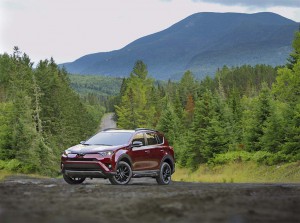
The all-new 2018 Ford Expedition and its luxury sibling, the Lincoln Navigator, sold well in January.
Automakers did better than many expected in January as General Motors, Toyota, Nissan and Volkswagen all posted sales gains and transaction prices continued to rise right along with incentives.
General Motors reported a 1.3% increase in sales with the help of a surge in fleet sales, which accounted for 23.8% of the company’s sales. GM is also sitting on 94 days of unsold inventory, partly because it is stockpiling trucks ahead of big model change later this year, but also GM’s retail sales also declined during January
“All of our brands are building momentum in the industry’s hottest and most profitable segments,” said Kurt McNeil, U.S. vice president, Sales Operations. “Chevrolet led the growth of the small crossover segment with the Trax as well as the mid-pickup segment with the Colorado. Now, we have the all-new Equinox and Traverse delivering higher sales, share and transaction prices,” he added.
Fiat Chrysler Automobiles N.V. reported a 13% drop in sales in January and sales in Canada also declined by 4% but FCA’s retail sales rose 2% to 111,577, rising to its second-highest level since 2001. FCA, however, has maintained its commitment of reducing fleet sales, which decreased by 50% compared with January 2017. Fleet accounted for 16% of total January sales.
(New vehicle sales expected to drop in January. Click Herefor the story.)
Ford Motor Co.’s U.S. sales for January dropped by 6.6%. despite record sales of the F-150 and strong start to sales of the new Lincoln Navigator.
“U.S. economic factors are very healthy and we’re seeing the effect in the auto industry not just in strong demand for SUVs and pickups, but in demand for high trim versions of vehicles. Our all-new Expedition and Navigator are off to a hot start across the country,” noted Mark LaNeve, Ford vice president of sales, service and marketing.
Toyota Motor North America reported an impressive 16.8% sales increase in January from January 2017 on a volume basis. With one more selling day in January 2018 compared to January 2017, sales were up 12.1% on a daily selling rate basis.
“We are off to a great start with strong customer demand for light trucks, including RAV4, Highlander and 4Runner, setting best-ever records for January,” said Jack Hollis, group vice president and general manager, Toyota division.
(Click Here for more about automaker concerns for 2018 sales after a slow December.)
“We’re encouraged by the strength of the market and the momentum we have with a full calendar year of the all-new Camry, followed by the launch of the all-new Avalon in the spring,” Hollis said.
Nissan Group today announced total U.S. sales for January 2018 of 123,538 units, an increase of 10% more than the previous year and a January record. Honda unfortunately did not make it three-for-three by Japanese makers as its sales drop 1.7% for the month. The Honda Division was down 1.6% while its Acura luxury brand dropped 3.2%.
Meanwhile Volkswagen of America Inc. reported an increase of 5.2% over January 2017. Of course, Audi posted another monthly increase at it sold 14,511 units, which was good for a 9.9% jump, led by the Q7 and A4.
Perhaps just as important as the fact that sales rose was the fact that transaction prices also went up, more than keep up with incentive spends by automakers in January.
“January was a strong month for transaction prices, rising nearly 4% on average,” said Tim Fleming, analyst for Kelley Blue Book.
(To see why some think auto ownership may have passed its peak, Click Here.)
“The shifting sales mix to trucks and SUVs has been particularly extreme lately, and as volume shifts away from cars, the average vehicle price ticks up. However, there was a glimmer of hope in the mid-size car segment, where prices rose 3% in January, thanks to the newest generations of the Toyota Camry and Honda Accord. These well-received new models, along with the redesign of the Nissan Altima due later this year, will test how much demand still exists for sedans,” Fleming said.



I see GM is back in the fleet sales game. Bad times coming, revenue decreasing and expenditures (on autonomous cars) increasing.